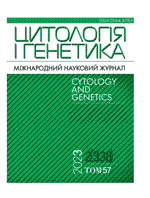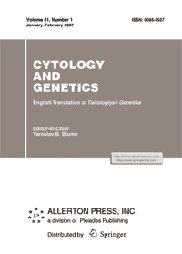Cytology and Genetics ,
vol. ,
no. , ,
doi: https://www.doi.org/
The perspectives of restricted plant genome transfer by means of fusion of isolated microprotoplasts containing one or few chromosomes with recipient protoplasts are considered. Efficiency of the usage of antimicrotubular compounds such as phosphoroamidates (amiprophosmethyl and cremart), dinitroanilines (oryzalin) as well as propizamide and microtubule organising center disrupters (griseofulvin and phenylcarbamates) for micronucleation are analyzed. Advantages of the combined usage of antimicrotubular drugs and cytochalasin В as disrupter of actin filaments for enhanced yield of microprotoplasts are considered. Results of subsequent establishment of microprotoplast-mediated chromosome transfer technique is summarized. The examples of successful microprotoplast-mediated transfer of individual chromosomes from a donor potato line into mesophyl protoplasts of Nicotiana tabacum and into recipient cells of wild tomato (Lycopersicon peruvianum) with subsequent selection and regeneration of hybrids are considered. Development of alternative methods of partial genome transfer using microprotoplasts produced from plant gametes (microspores) is presented. The advantages of microprotoplast-mediated transfer of chromosomes as an efficient technique of parasexual crossing in comparison with traditional somatic hybridization are discussed.
Keywords:

